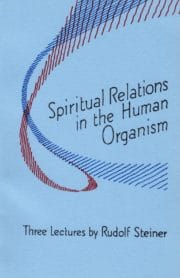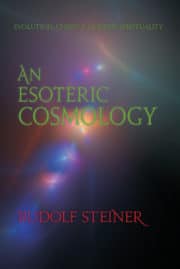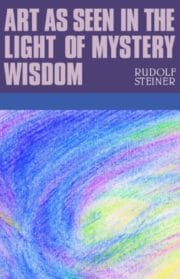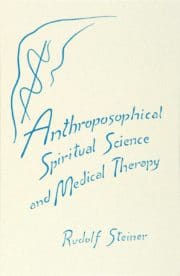Spiritual Science and Medicine
Dornach, March 21 – April 9, 1920, GA 312
Taking account of modern medical knowledge and practice, and deeply versed in alchemical, Paracelsian, and naturopathic approaches, as well as homeopathy, aroma therapy, and other ‘alternative’ therapies, Steiner demonstrates, on the basis of his own researches, how a truly integrated whole-person medicine is possible — one that understands the human as a being of body, soul, and spirit; a microcosm in the macrocosm, a mirror of the earth and of the heavens.
Steiner’s enthusiasm and familiarity with his subject are in evidence everywhere in this volume. The wealth of insights and the range of topics are staggering — from the meaning of sickness, polarities in the human organism, and the relation of therapy and pathology, to the nature of plant, mineral and animal in relation to the human being. Specific organs (heart, lungs, bladder, kidney, liver, and nervous system) and specific diseases (including cancer, tuberculosis, diabetes, and meningitis) are brought into extraordinary new relationships and interconnections. The whole question of diagnosis, health, and treatment is repeatedly viewed from various points of view.
These twenty lectures of Dr. Steiner’s on Spiritual Science and Medicine were given at the request of a number of practicing Doctors in Medicine. Some thirty doctors and students attended.
About the Author
Rudolf Steiner (b. Rudolf Joseph Lorenz Steiner, 1861–1925) was born in the small village of Kraljevec, Austro-Hungarian Empire (now in Croatia), where he grew up. As a young man, he lived in Weimar and Berlin, where he became a well-published scientific, literary, and philosophical scholar, known especially for his work with Goethe’s scientific writings. At the beginning of the twentieth century, he began to develop his early philosophical principles into an approach to systematic research into psychological and spiritual phenomena. Formally beginning his spiritual teaching career under the auspices of the Theosophical Society, Steiner came to use the term Anthroposophy (and spiritual science) for his philosophy, spiritual research, and findings. The influence of Steiner’s multifaceted genius has led to innovative and holistic approaches in medicine, various therapies, philosophy, religious renewal, Waldorf education, education for special needs, threefold economics, biodynamic agriculture, Goethean science, architecture, and the arts of drama, speech, and eurythmy. In 1924, Rudolf Steiner founded the General Anthroposophical Society, which today has branches throughout the world. He died in Dornach, Switzerland.













Reviews
There are no reviews yet